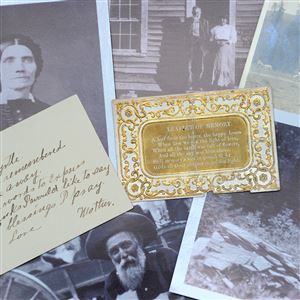The reader’s enjoyment of “M Train,” the latest memoir from musician, poet and provocateur Patti Smith, may hinge entirely on the pleasure he takes in, or more accurately patience with, the seemingly endless cups of coffee imbibed by the author in these pages. Cup after cup in cafes from Greenwich Village to Tangiers is downed by the Godmother of Punk as this meandering, but ultimately satisfying book unfolds.
Knopf ($25).
Ms. Smith’s previous memoir, “Just Kids,” told the story of her early days in New York City with her great friend, the infamous photographer Robert Mapplethorpe. That book was filled with a crackling energy. And even though Ms. Smith’s recollections were liberally soaked in a rose-colored patina, that story of young love and artistic discovery connected in a very real way with readers. Call it portrait of the artist as a young punk. She won the National Book Award for Nonfiction for it in 2010.
“M Train” leaves behind the turbulent downtown scene of New York City in the 1970s to catch up with Ms. Smith now living a quiet, solitary life with her cats, her memories and her detective shows. She watches a lot of them. Her favorites being the American version of “The Killing” and the many iterations of “Law & Order” (she in fact appeared on a episode of “Law & Order: Criminal Intent” in 2011).
Not much happens in “M Train.” True, Ms. Smith travels quite a bit, gives a controversial talk at the Alfred Wegener Institute (a secretive club dedicated to the tragic polar explorer), sings an impromptu “Big Girls Don’t Cry” with chess wunderkind Bobby Fischer, and visits the grave of notorious French author Jean Genet. These small adventures, though, merely feel like diversions, small snags in the weave of an otherwise perfect piece of cloth. Her travels only seem to underscore an inner inertia.
Mostly, though, Ms. Smith keeps to herself. She sips her coffee in her neighborhood cafe and reflects on favorite authors (she gets pretty hung-up on Haruki Murakami’s “The Wind-Up Bird Chronicle”), and her late husband Fred “Sonic” Smith of the protean Detroit noisemakers the MC5.
It’s the absence of Fred “Sonic” Smith that gives “M Train” its pervasive undertow of wistfulness. “Without noticing, I slip into a light yet lingering malaise. Not a depression, more like a fascination for melancholia, which I turn in my hand as if it were a small planet, streaked in shadow, impossibly blue,” she writes. While “Just Kids” delighted in the effervescence of the young, here Ms. Smith renders the world not in the Times Square neons of her youth, but with her austere W. G. Sebald-like black-and-white photos. She scatters these photos throughout the pages of her story like errant punctuation.
Early in the book a cowboy appears to Ms. Smith in a dream and tells her, “It’s not so easy writing about nothing.” The cowboy returns periodically to haunt Ms. Smith’s slumbers with vague non sequiturs, but it’s his opening admission that identifies the tension in these pages. There is no clear center to “M Train.” Without her friendship with Mr. Mapplethorpe to mythologize Ms. Smith is unmoored.
This is not to say there are no pleasures to be found here (in fact there are many), but if readers are looking for “Just Kids II,” they will be disappointed by “M Train.” This is a book of quiet meditation wherein a “CSI Miami” marathon can inspire the same deep self-reflection as the work of the late Chilean author Roberto Bolano. Ms. Smith stares into her many cups of black coffee and, like Mr. Murakami with his mysterious wells, and Wegener’s polar expansions, whole worlds are opened up to her. “M Train” is her report back from those journeys.
Kristofer Collins is a poet and author of the recently released “Local Conditions.” He lives in Pittsburgh.
First Published: November 1, 2015, 4:00 a.m.

















